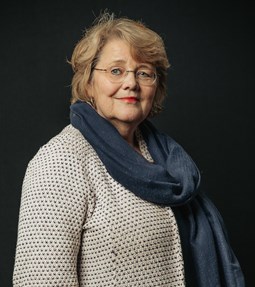With aging, the number of people with a chronic illness is also increasing. Adjusting lifestyle slows down aging and reduces the risk of conditions such as diabetes, muscle loss, and dementia. The question is: which older individuals develop early vulnerability and risk of illness? And which preventive measures work for whom?
In many cases, the risk of these conditions can be predicted based on measurements of so-called ‘metabolites’ in the blood. A metabolite is a molecule or compound that is formed during metabolism or in response to inflammation. It is increasingly possible to create a biological profile using just a few drops of blood, thereby mapping out the risk an individual has for developing general vulnerability or specific conditions.
Thus, metabolites are an interesting ‘biomarker’ of biological age: with a relatively inexpensive and simple finger prick, older adults can receive a health check.
Applying scientific findings in healthcare practice
Scientists from various disciplines have been collaborating for many years on the scientific program METABODELTA: Metabolomics for Clinical Advances in the Medical Delta.
The Medical Delta Program ‘Healthy lifestyle interventions and advice for 55+ in the community and in primary care’ (GLIAGE) builds on this and aims to bring scientific findings closer to practical healthcare.
The Medical Delta Program GLIAGE aims to achieve this by making health checks widely accessible. Thanks to these checks, preventive healthcare can be offered to older adults in a more targeted manner. Healthcare professionals can assist individuals with a high-risk profile in reducing their risk through personalized lifestyle interventions.
Within the Medical Delta Program GLIAGE, multiple complementary parties focus on practical implementation. It is being determined which professionals in primary care, such as general practitioners and occupational health physicians, can perform the health checks, what the cost-effectiveness and improvement in quality of life are, and which organizations can financially support this. The program examines the possibilities of identifying individuals aged 55 and older in regular healthcare practices as ‘at risk’ and how to motivate them to make proven effective lifestyle changes.
Goals
The Medical Delta Program GLIAGE aims to:
- develop an implementation strategy to offer health checks to older adults in an accessible manner;
- align preventive interventions with specific biological (risk) profiles;
- reduce the disease burden of older adults and improve their quality of life.
Contact
For more information or if you're interested in participating, please contact one of our innovation managers.







